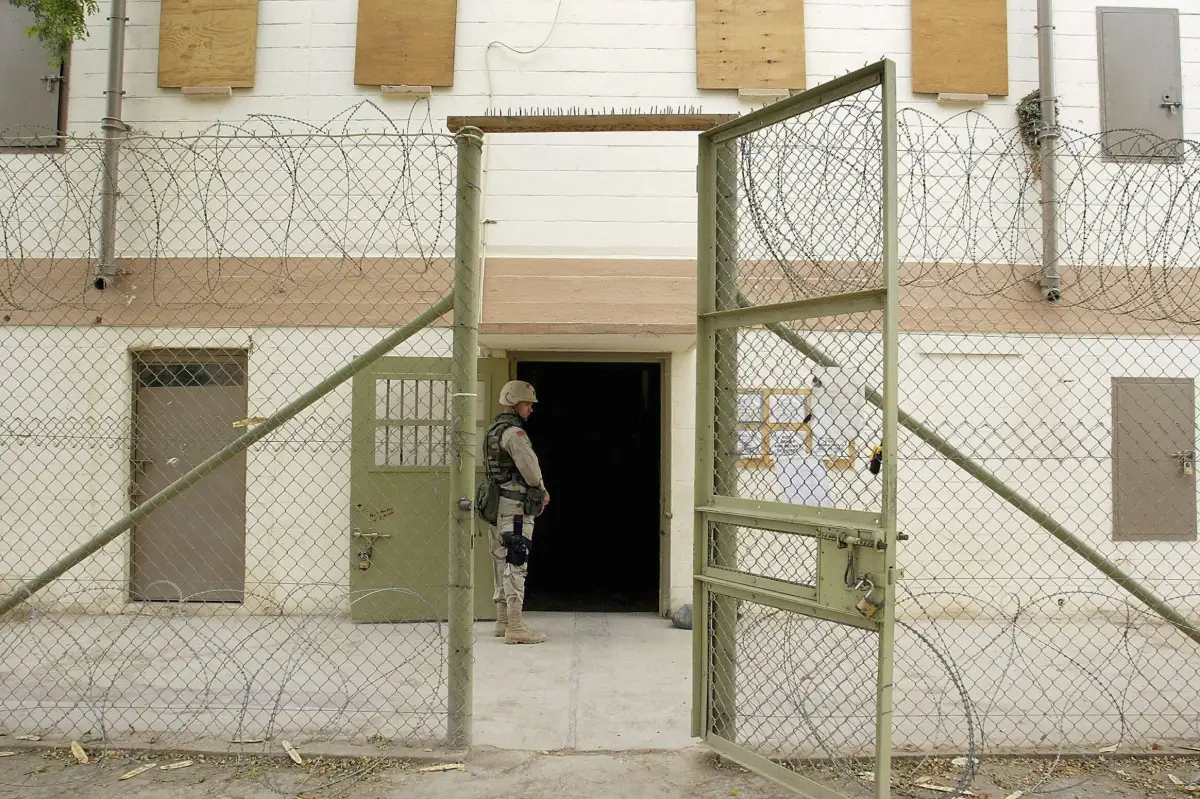Some may find the following images disturbing, Viewer Discretion Advised: Already a subscriber? Make sure to log into your account before viewing this content. You can access your account by hitting the “login” button on the top right corner. Still unable to see the content after signing in? Make sure your card on file is up-to-date.
A former inmate held at the notorious US military prison Abu Ghraib detailed his alleged abuse before a US jury on Monday.
Salah Al-Ejaili, who spent over a month detained in 2003, recounted beatings, enforced nudity, and threats with dogs—abuses echoing the infamous scandal that emerged 20 years ago. This trial marks the first instance where survivors of Abu Ghraib have had the opportunity to present their torture allegations in a US court.

Al-Ejaili, along with two other former detainees, is suing the Virginia-based military contractor CACI. They claim the firm was complicit in their torture through its provision of civilian interrogators under an Army contract. These contractors, according to government investigations cited in the lawsuit, encouraged military police to “soften up” the detainees to facilitate interrogations.
In response, CACI’s defense attorney, John O’Connor, admitted that “some Abu Ghraib detainees suffered horrific abuse” but claimed that CACI was innocent. He questioned the company’s direct involvement, stating, “They are not pictured in the widely circulated photographs that leaked in 2004,” and argued there were “no formal interrogations of Al-Ejaili.” O’Connor further challenged the plaintiffs’ claims, suggesting that “there’s no evidence that CACI interrogators inflicted abuse on them” and that the soldiers seen in the photos were acting independently: “They were MPs who were sadistic, who did it on their own, and without any encouragement.”

O’Connor also argued that the US military maintained strict control over the interrogators, adding, “The Army is pretty jealous about who has control of operations in a war zone,” indicating that any misconduct by CACI employees was under military supervision.
On the other side, the plaintiffs’ attorney, Baher Azmy, argued that CACI’s liability does not hinge on direct actions of abuse but on their role in the broader context of conspiracy with military police to torture detainees. Azmy emphasized the significance of the testimonies to come, particularly from Army generals who investigated the abuses, stating, “This case is about one of the most disturbing and shameful events in recent American history.”

The trial, which has been delayed for over 15 years due to legal challenges, is moving quickly as key witnesses, including Al-Ejaili and former military personnel, provided their accounts.
During Al-Ejaili’s testimony, he described his alleged abuse, recalling a time when he was left handcuffed to a pipe, with his body off the ground. He said it felt “as if your shoulders are being pulled from their place.”







